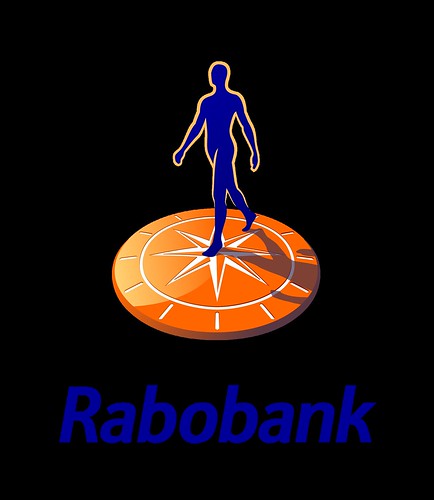I wrote an article for Coindesk, the leading news and information site about virtual currency, about an example of how banks are trying to stop Bitcoin. I repost the piece here, the orginal article is here.
It seems banks have started to realize that bitcoin could be a major threat for them.
In the US many banks don’t accept any bitcoin businesses as clients, possibly because of regulatory concerns and money laundering risks.
Individuals aren’t free from bitcoin banking issues either. CoinDesk reported recently that a Swedish bank froze a customer’s account for selling just 5 BTC.
Now it is the Netherlands’ turn. A bank has taken matters a step further and simply blocked most of its customers from buying bitcoins at exchanges.
According to an article in the Dutch press, Rabobank cancelled 99% of its customers’ transactions with bitcoin exchanges on Tuesday and Wednesday.
Rabobank did not give a reason for this, but a spokesperson for Dutch bitcoin exchange BTCNext said it was because transactions are seen as potential fraud.
However, many clients of Rabobank could not finalize and complete their transaction, even after calling to confirm that their transfers were not fraudulent.
Coincidentally, I have an account at Rabobank that I have used to buy bitcoins. This worked well until September, but after that transactions did not get processed reliably. I assumed it was problem with the bitcoin exchange I was using, and accepted that I could not buy additional coins.
I now wonder if the bank may have been behind this issue all along. Could it be that the Rabobank has been intervening in its client’s transactions for far longer than just the past two days?
Technical problems, really?
Because the bank claimed that the problems were technical and had been solved, I decided to try to buy five bitcoins just now through Rabobank.
The transaction went through until the moment I hit the pay button. Then I got an error message saying that my account number was not correct.
I tried this several times and each time I got the same error. Then I tried to transfer a small amount to someone else as a test, and guess what? The transaction went through right away! So Rabobank is still not allowing people to buy bitcoin.
I understand why a bank would try to do this, of course. This is money that people may normally leave in their savings accounts. When a customer decides to use it to purchase bitcoin the bank has less money on its books, meaning that they can’t lend out as much as before. If just a few people would do this, it would not be a big issue. But when the general public starts to adopt bitcoin it could endanger part of the bank’s business.
Banks need to innovate and embrace bitcoin
If I was running a bank, I would not try to stop bitcoin, but instead actively look at embracing the cryptocurrency.
Why not set up or buy a bitcoin exchange, or create an easy-to-use wallet and make sure that people keep their bitcoin deposits with you? Not only would it be great PR, but it could create a lot of new customers as well.
I understand that banks are conservative, but they are making the same mistakes as the music and newspaper industries did over the past ten years.
You can’t stop financial innovation. If you can’t beat them, then you’d better join them.

I worked in money transfer for a while. We engaged with retailers to use their back-end EPOS systems to move money cheaply around their international store network.
Business plan was to target currency movement of less than $1,000 or 1,000 Euros. That’s the level set to stop money going into the shadows.
Got through security systems, got a deal with a bank that ended up buying 30% of the business.
Couldn’t believe the regulatory hurdles that were put in our way.
Had my schedule planned over 18 months to travel to every State in the USA to apply for licences. Went to Mexico to apply for a licence, went to Poland, Indonesia, Ireland, Spain and started to look at China but gave up after setting up a business there.
The regulatory burden was and is overwhelming, but you knew the rules of the game, after spending enough time on the rules, lawyers and translators. But the banks, they just shut every door and you needed a bank at either end of a trade to engage with local partners.
Fear of falling foul of money laundering rules is a real concern. But actually, regulation is the banks friend because it sets a high barrier to entry and stops new disruptive entrants.